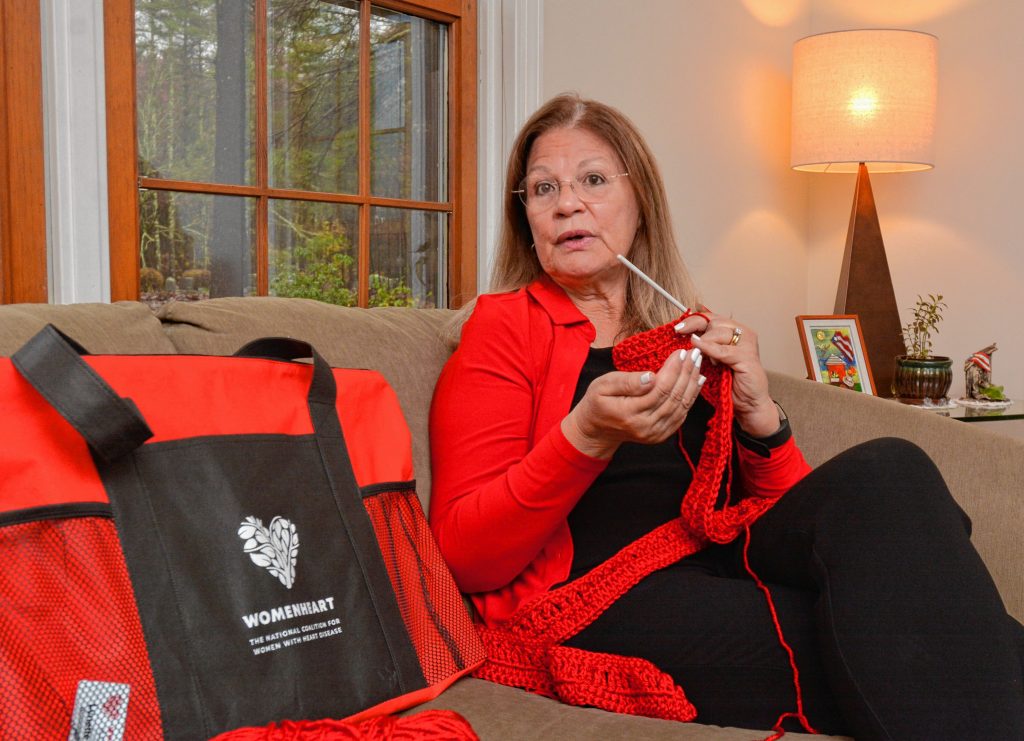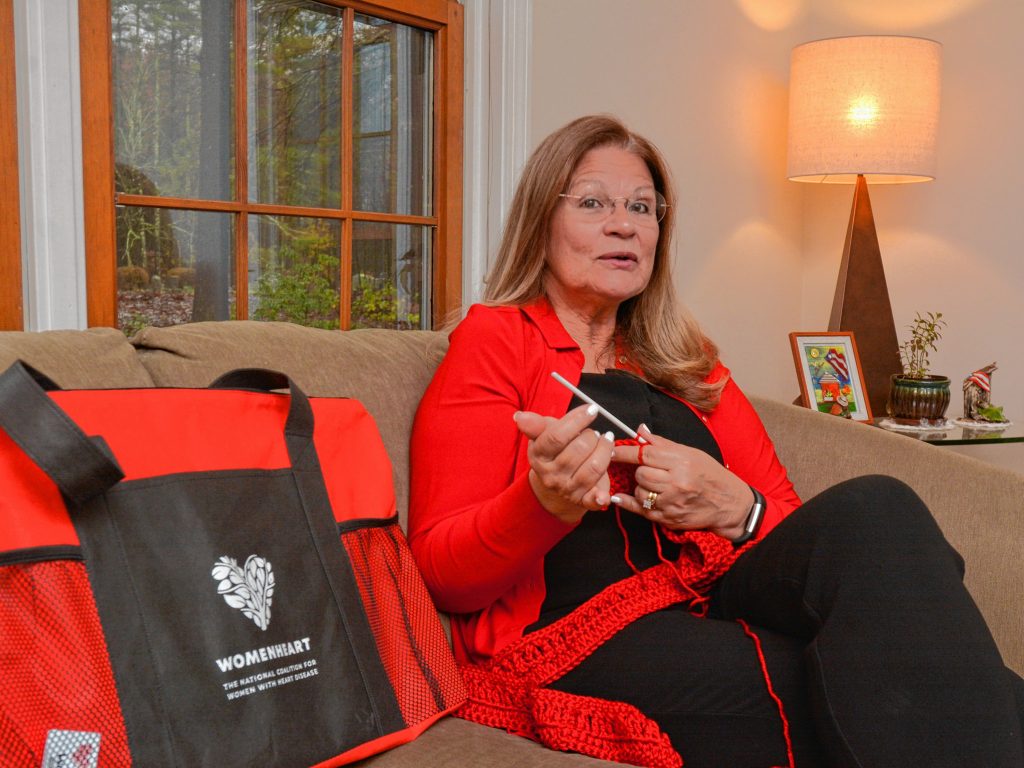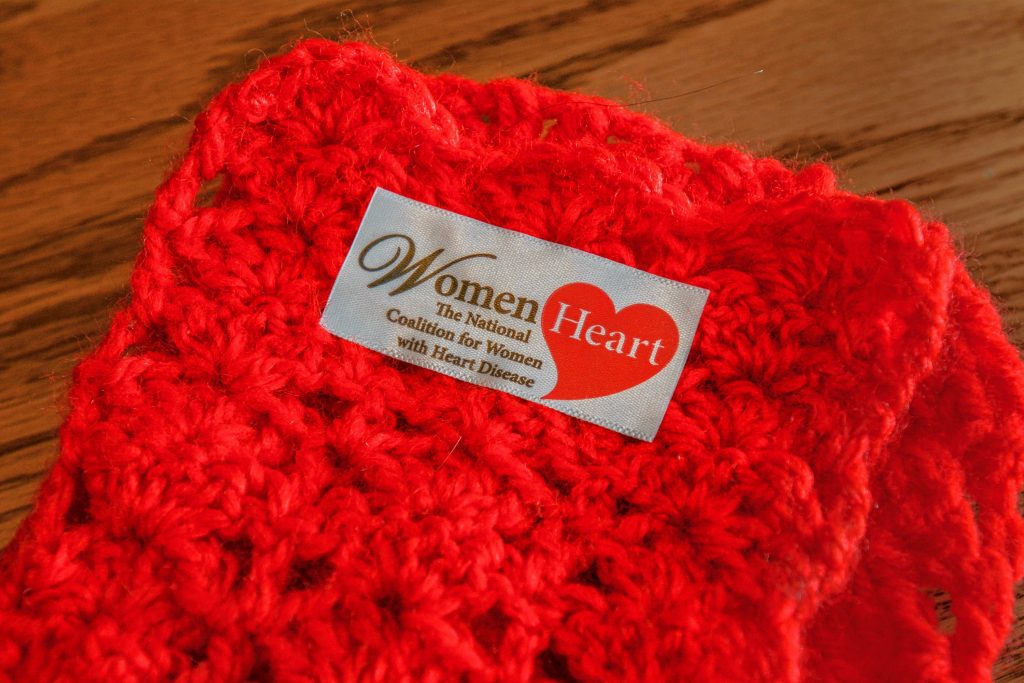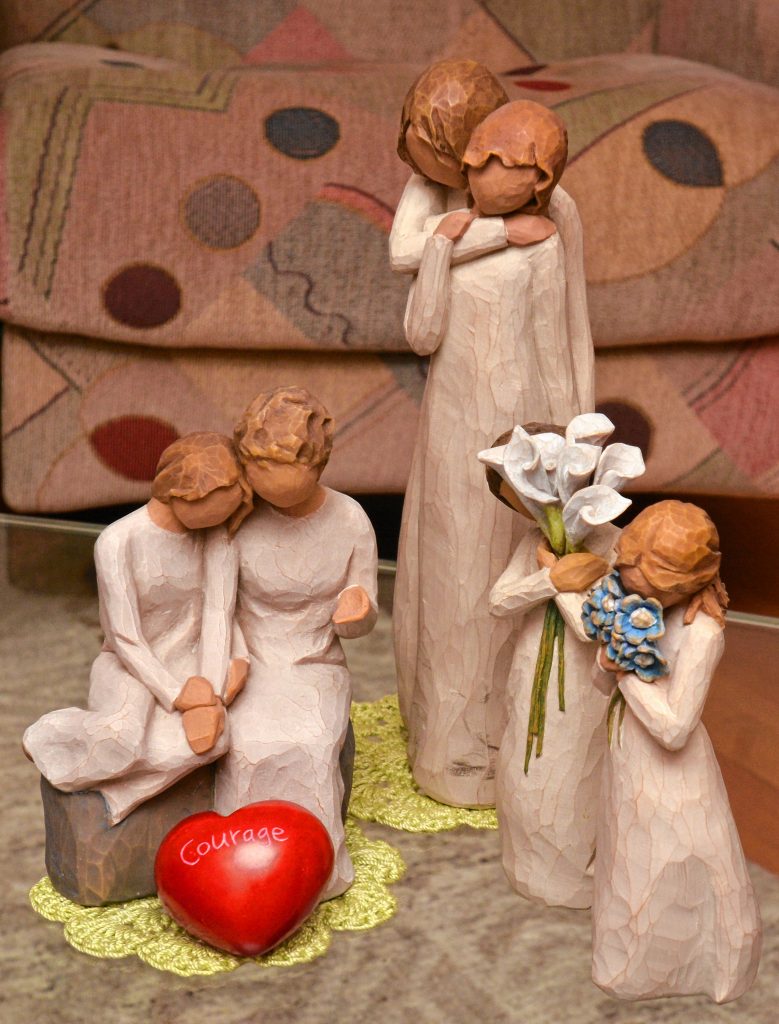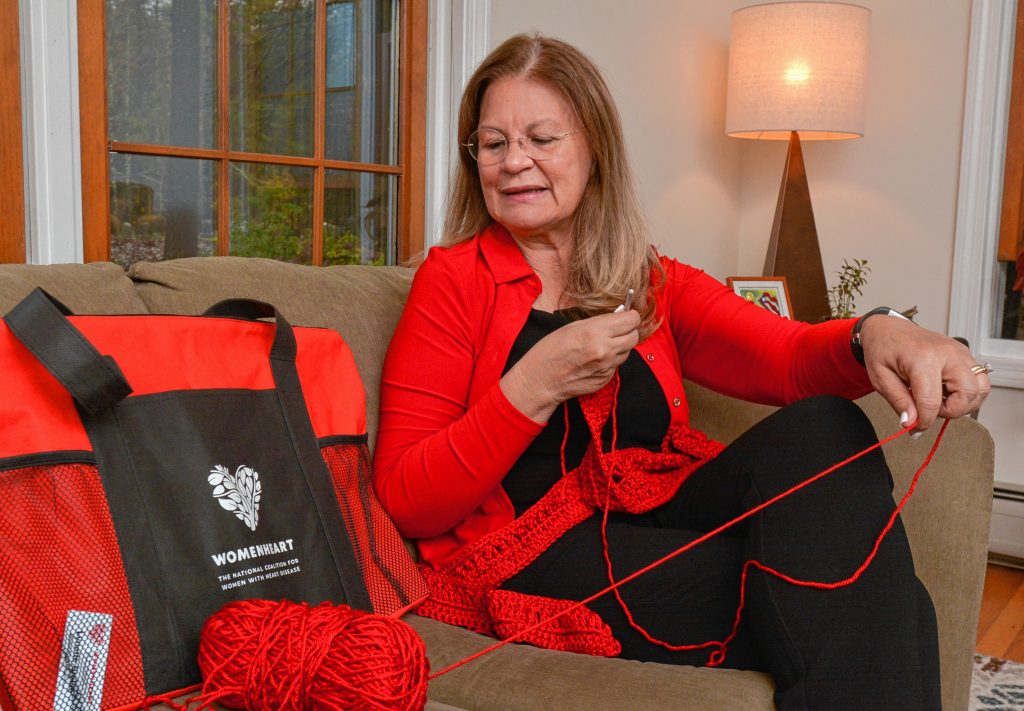When Lynette Bloise would tell her husband, “It’s happening,” he knew exactly what that meant: a trip to the emergency room.
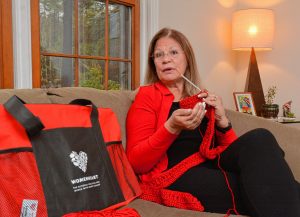
Lynette Bloise, who has become a WomenHeart champion, crochets a scarf as she talks about her work with the group, Thursday, Oct. 31, 2019, at her home in Pelham. Jerrey Roberts photo
Before May 2018, Bloise would have cardiac episodes stemming from conditions that caused her heart to suddenly beat erratically, alternating from beating slowly to very rapidly. For 11 years, she had more episodes after her first in 2007, sometimes weeks apart, due to a lack of treatment. Finally, after seeking medical opinions from different doctors, she underwent open-heart surgery for atrial fibrillation and atrial flutter — conditions causing irregular heartbeats — and has not had an episode since.
“When I would say, ‘I have it,’ I would be shaking like a leaf from head to toe, and my heart would be beating crazy,” said Bloise, who is now a volunteer with WomenHeart, an organization dedicated to supporting women with heart disease and raising awareness of the prevalence of heart disease among women.
Despite decades of research on heart disease, women have only been included in heart disease studies relatively recently, and a lack of information remains — even in the medical community — on how the illness can affect women.
During Bloise’s episodes, her heart rate would range from 55 beats per minute to 200 beats per minute within a few moments. In one instance, Bloise and her husband rushed from their home in Pelham, and when her husband saw a police officer in the center of Amherst, he flagged him down and yelled that she was having a heart attack.
“The policeman would escort us over the bridge into Northampton —” she said, briefly breaking off to hold back tears, “— to the hospital. And this was not one time, this was many times. And then I got to a point where I was so used to it, that I would say, ‘I have it,’ and he’d say, ‘OK.’ And we would drive calmly, with my heart jumping up and down.”
During the 11 years it took to get her diagnosis and subsequent heart surgery, Bloise said she felt alone and isolated, even ashamed, of her condition.
WomenHeart Champion
Now Bloise believes she can be somebody that women with heart disease can turn to.
Last month, Bloise attended a Mayo Clinic in Rochester, Minnesota, in order to become a volunteer with WomenHeart: The National Coalition for Women With Heart Disease, an organization dedicated to serving women living with or at risk of heart disease. She also is crocheting red scarves to give to the women she works with to offer comfort and support.
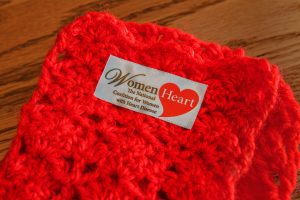
A scarf crocheted by Lynette Bloise for WomenHeart rests on a table at her home in Pelham, Thursday, Oct. 31, 2019. Jerrey Roberts photo
According to the Center for Disease Control and Prevention, heart disease is the leading cause of death for women in the United States, killing one in five of the women who died in 2017. The term “heart disease” refers to several types of heart conditions, including coronary artery disease and heart attack.
Dr. Ali Haider, a cardiologist at Hampshire Cardiology Associates, estimates that about two out of three women do not think of heart disease as the number one cause of death for women. Combined with women being more likely to exhibit atypical symptoms for heart attacks and heart disease, it creates an environment where some doctors and women might be missing the signs of heart disease.
For men, the typical symptoms for a heart attack include pain or pressure of the chest radiating to the arm or jaw, Haider said.
“Then, there are atypical presentations (for women) that can include shortness of breath, nausea, severe fatigue and abdominal pain,” Haider said. “You have a scenario and phenomena where females with heart disease can be underappreciated and it can slip through the cracks. It potentially means that women might not be initially diagnosed or suspected by women themselves or their health care providers.”
Bloise is one of only two certified volunteers with WomenHeart in Massachusetts. By becoming a WomenHeart Champion, her official title, she is raising awareness of heart disease for women with plans to hold support groups and visiting women at local hospitals who are dealing with heart complications.
As a WomenHeart Champion, Bloise hopes to become a community educator, someone that other women with heart disease can count on for support, and to help them feel empowered enough to advocate for themselves if they go to the emergency room and request EKGs and enzyme blood tests.
“This is about making women aware that they don’t have to do this by themselves,” Bloise said. “[WomenHeart] is bringing women together, educating women about their conditions and letting them know that there is help and they don’t have to endure this themselves.”
Prior to 1991, several large heart-disease studies excluded women until the Women’s Health Initiative began researching how heart disease affects women and discovered that past medical knowledge only partially applied to women. In 2015, the congressional bill called Research for All Act requires scientists to conduct National Institutes of Health-funded research using both males and females.
“We have a lot of data and cardiovascular trials that have been done and a majority of those trials have been comprised of white males,” Haider said. “Women were always the minority. Our understanding of women with heart disease was a little less.”
He continued, “We clearly didn’t understand their presentations as well, which were different than men. Even though the disease is the same, it is not being exhibited in the same manner, and that is what we have to focus on and that’s what the education should be.”
Until attending the clinic in October, Bloise said she could not publicly tell people she had heart disease due to feeling ashamed.
“I could never say I have heart disease and ever since I came back, I felt that freedom to say I have heart disease,” she said.
Bloise spoke of her heart condition in stark terms.
“When I was initially diagnosed, the diagnosis was a mystery,” Bloise said. “I felt my illness was a consequence of a character flaw. It took me years of hurt, pain and shame while continuing to be hopeful and resilient until I found a doctor to treat my illness and he gave me my life back.”
Bloise flew out to California to get a second opinion for her condition because she felt her primary care physician in eastern Massachusetts could not properly treat her cardiac episodes.
Adding to the hardship, Bloise said, was that her primary care doctor had dismissed the idea of getting a second opinion and actively discouraged it. Bloise said she decided to anyway.
“That doctor had been treating me for years, and to let go of that, you know how it hurt?” Bloise said. Her experience of dealing with a medical condition she did not quite understand, coupled with a doctor that dismissed the idea that he had not correctly diagnosed her, left her feeling helpless.
“I wished someone would have said that you have a right to a second opinion because he was so mad that I got a second opinion,” Bloise said. “He was furious.”
Haider said he encourages “patients to be their own advocates” since even the best doctors can miss a proper diagnosis. Sometimes getting a second opinion is important.
“Never be ashamed or fearful that your doctor is going to be upset,” Haider said. “I would encourage patients to take your health in your own hands if you do not feel you are getting the answers you need or you are not comfortable.”
As a WomenHeart volunteer, Bloise hopes to reach women with heart disease while they are at the hospital. An initiative she is seeking permission from hospitals to begin would be to visit women with heart disease at local hospitals and spend time with them on a one on one basis.
“WomenHeart Champions are training to be community educators, to tell their personal heart stories in order to educate and empower women to take charge of their heart health,” Bloise said.
Luis Fieldman can be reached at lfieldman@valleyadvocate.com.

